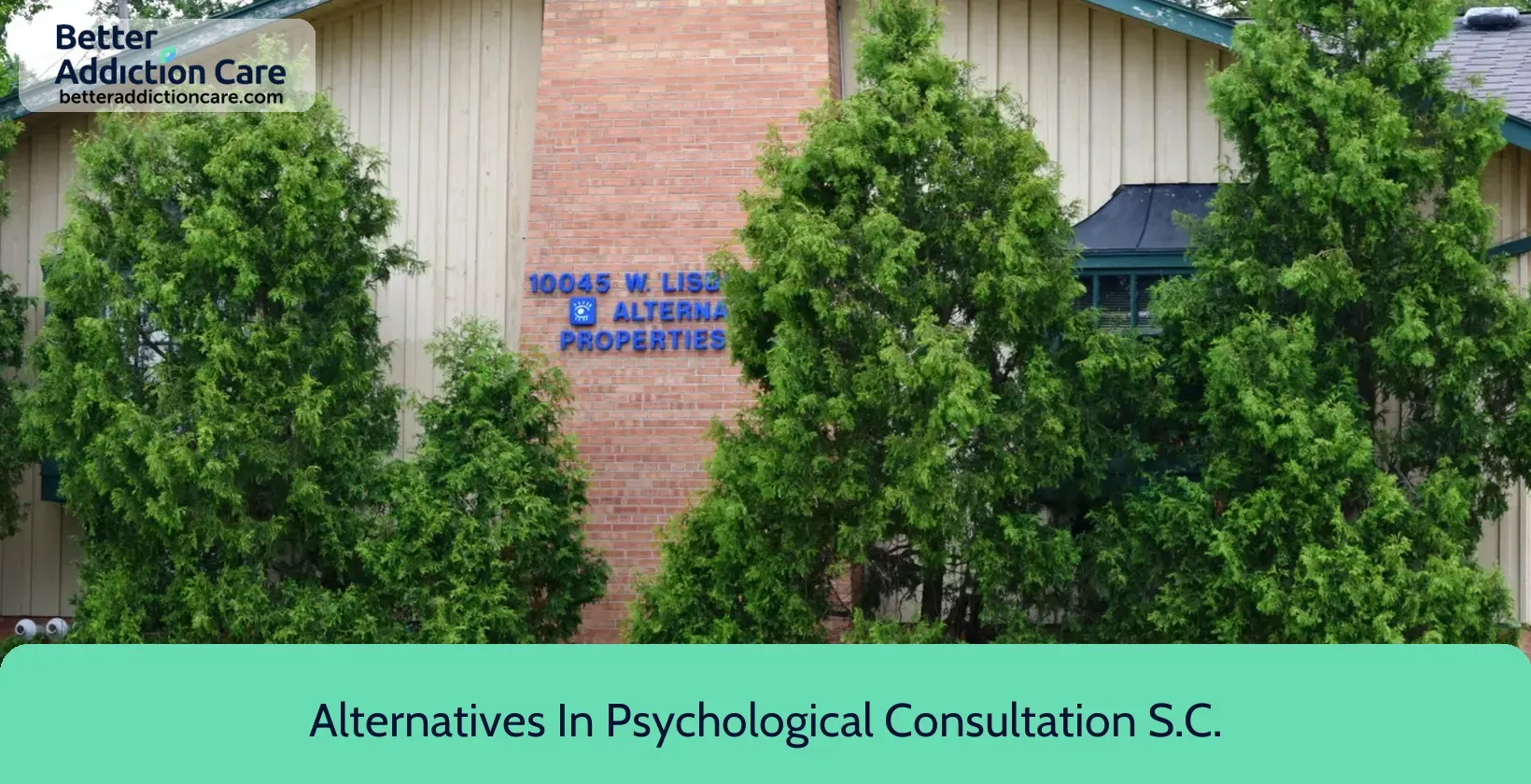Alternatives In Psychological Consultation S.C. - West Washington
Overview
Alternatives In Psychological Consultation S.C. - West Washington is a mental health treatment center for people seeking treatment near Milwaukee County. As part of their treatment modalities for recovery, Alternatives In Psychological Consultation S.C. - West Washington provides individual psychotherapy, cognitive behavioral therapy, and integrated mental and substance use disorder treatment during treatment. Alternatives In Psychological Consultation S.C. - West Washington is located in Milwaukee, Wisconsin, accepting cash or self-payment for treatment.
Alternatives In Psychological Consultation S.C. - West Washington at a Glance
Payment Options
- Cash or self-payment
- Medicaid
- Medicare
- State-financed health insurance plan other than Medicaid
- Private health insurance
Assessments
- Screening for mental disorders
- Screening for substance use
- Comprehensive mental health assessment
- Comprehensive substance use assessment
Age Groups
- Children/adolescents
- Young adults
- Adults
- Seniors
Ancillary Services
- Suicide prevention services
- Mental health services
Highlights About Alternatives In Psychological Consultation S.C. - West Washington
6.80/10
With an overall rating of 6.80/10, this facility has following balanced range of services. Alcohol Rehabilitation: 8.00/10, Drug Rehab and Detox: 6.00/10, Insurance and Payments: 6.00/10, Treatment Options: 7.21/10.-
Alcohol Rehabilitation 8.00
-
Treatment Options 7.21
-
Drug Rehab and Detox 6.00
-
Insurance and Payments 6.00
Accreditations
State mental health department:
State mental health department accreditation refers to the process of evaluating and certifying the quality and standards of a state's mental health department, ensuring that it provides high-quality services and meets specific criteria for mental health care. The accreditation process is performed by a third-party organization and helps to improve the overall care and treatment of individuals with mental health conditions.
State department of health:

Government agencies issue State Licenses, granting rehabilitation organizations permission to operate their businesses legally within specific geographic regions. The licenses needed for legal operation are typically determined by the type of rehabilitation program offered by a facility and its physical location.
Treatment At Alternatives In Psychological Consultation S.C. - West Washington
Treatment Conditions
- Mental health treatment
- Alcoholism
- Substance use treatment
- Co-occurring Disorders
Care Levels
- Outpatient
- Regular outpatient treatment
- Aftercare
Treatment Modalities
- Individual psychotherapy
- Cognitive behavioral therapy
- Integrated Mental and Substance Use Disorder treatment
- Telemedicine/telehealth therapy
- Trauma-related counseling
Ancillary Services
Languages
- Sign language services for the deaf and hard of hearing
- Spanish
Special Programs
- Clients who have experienced trauma
Get Help Now
Common Questions About Alternatives In Psychological Consultation S.C. - West Washington
Contact Information
Other Facilities in Milwaukee

6.65

6.93

6.68

7.05

6.77

6.65

7.17

7.12
DISCLAIMER: The facility name, logo and brand are the property and registered trademarks of Rawhide Youth Services, and are being used for identification and informational purposes only. Use of these names, logos and brands shall not imply endorsement. BetterAddictionCare.com is not affiliated with or sponsored by Rawhide Youth Services.

